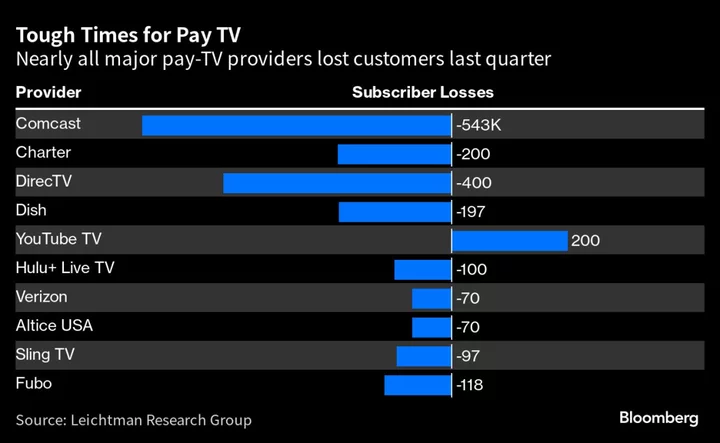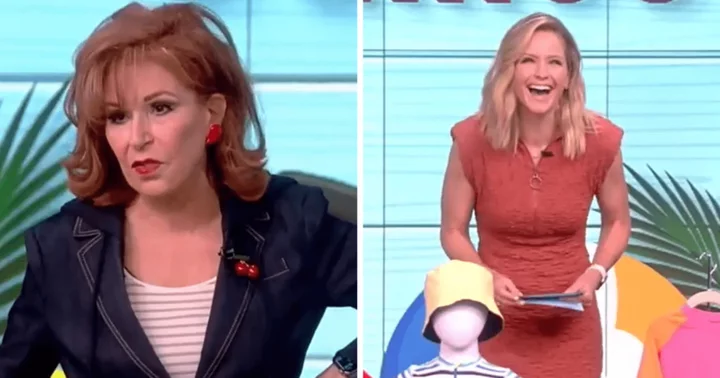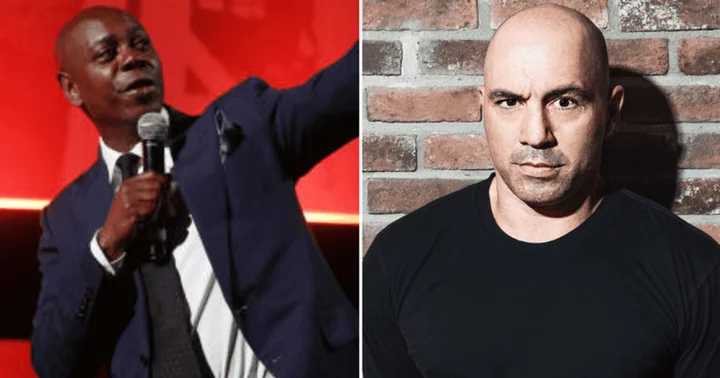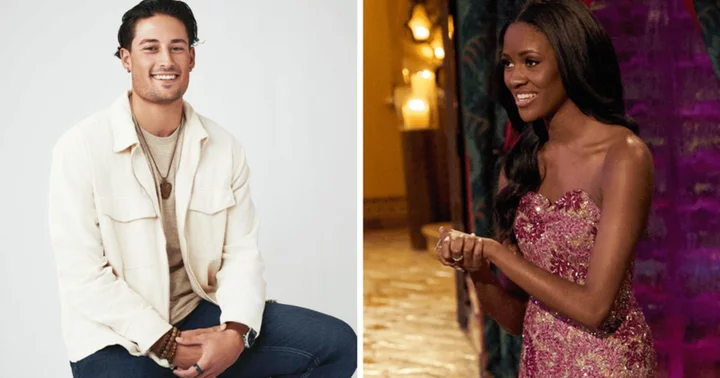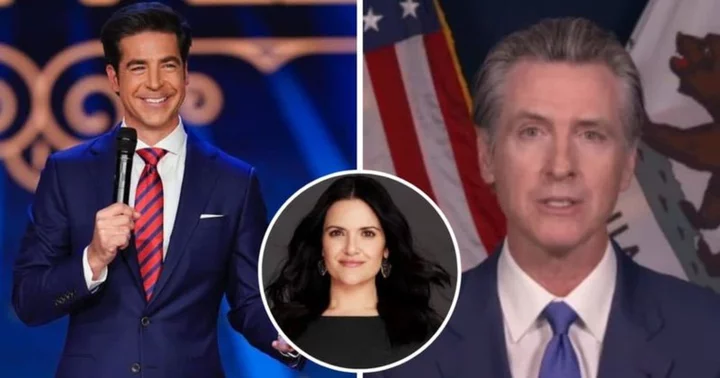Walt Disney Co. and Charter Communications Inc., locked in a fee standoff that’s cut off 14.7 million cable TV viewers from ESPN, are steering consumers to online services where they can replace the lost channels.
Disney has been running ads on social media, its website and its TV channels telling people to subscribe to Hulu+ Live TV, its own $70-a-month, cable-TV alternative offering ABC, ESPN and other channels pulled from Charter.
Charter, which sells TV, broadband and wireless services under the Spectrum brand, is urging consumers to sign up for FuboTV Inc., a competing online service that starts at $75 a month for 180 channels, including those cut off by Disney.
Subscribers to Spectrum, many of them in major cities like New York and Los Angeles, learned this past weekend that they had lost access to Disney-owned channels such as ESPN and ABC because of the fee dispute. That’s cut viewers off from major sports events like the US Open tennis tournament and potentially the new NFL season.
Charter blames Disney for the disruption. Disney “wants to limit our ability to provide greater customer choice in programming packages forcing you to take and pay for channels you may not want,” the company said last week.
Charter wants to be able to offer more packages without ESPN, one of cable TV’s most expensive networks. It also wants the option to add Disney’s online services — Disney+ and ESPN+ — for free as part of its programming bundle.
Disney, which is seeking increases in the roughly $2.2 billion in subscriber fees — about $12.50 a month per household — that it gets from Charter annually, made clear late last week free streaming services are a nonstarter. The dispute puts up to $4 billion in annual revenue at risk for Disney, including subscriber fees and advertising sales.
The fight could lead to a bump in subscriptions for services like Hulu and Fubo, two players among the handful of online cable alternatives that were once viewed as a growth business for the media industry.
Dish Network Corp. helped create the business with its Sling TV option in 2015. The product, offered as an alternative to satellite and cable TV, provided a package of live channels delivered over the internet. The services promise easier signup and cancellation because they don’t require a cable box or satellite dish.
But after a spurt of growth, they have mostly suffered the same subscriber losses as conventional pay-TV providers. In the last quarter, only YouTube TV increased its customers.
The dispute between Charter, the second-largest cable TV provider, and Disney, the world’s largest entertainment company, could mark a point of no return for traditional pay TV if the two sides don’t come to an agreement soon.
Because of rising monthly TV bills and lower-priced streaming options, the cable industry lost almost 25 million customers from 2015-2022. It’s expected to drop 6.7 million more by year end, falling to just over 72 million, according to Bloomberg Intelligence.
Because of that shrinking subscriber base, Disney Chief Executive Officer Bob Iger is exploring a future without cable channels and broadcast stations. At conference in Sun Valley, Idaho, he outlined the possibility of bypassing traditional TV providers and selling ESPN directly to consumers via an online subscription.
Disney’s other broadcast and cable networks may no longer be core operations, he said.
Without popular channels like ABC or ESPN, Charter will face a steeper decline in TV subscribers. The company could lose about 2 million subscribers, representing about $2.7 billion in revenue, according to Bloomberg Intelligence analyst Geetha Ranganathan.
Tensions between cable services like Charter and programmers like Disney have been growing for more than a decade.
Charter CEO Chris Winfrey said Friday on an investor call that his company has come to “a crossroads.” TV service is reaching a point of “economic indifference” — his strongest suggestion yet that the company is ready to deemphasize cable service and focus more on broadband and mobile services.

